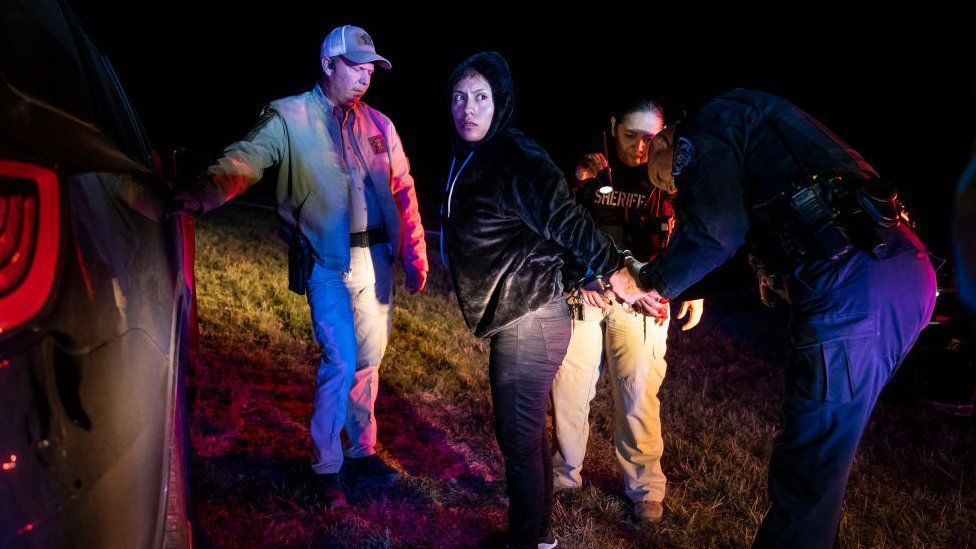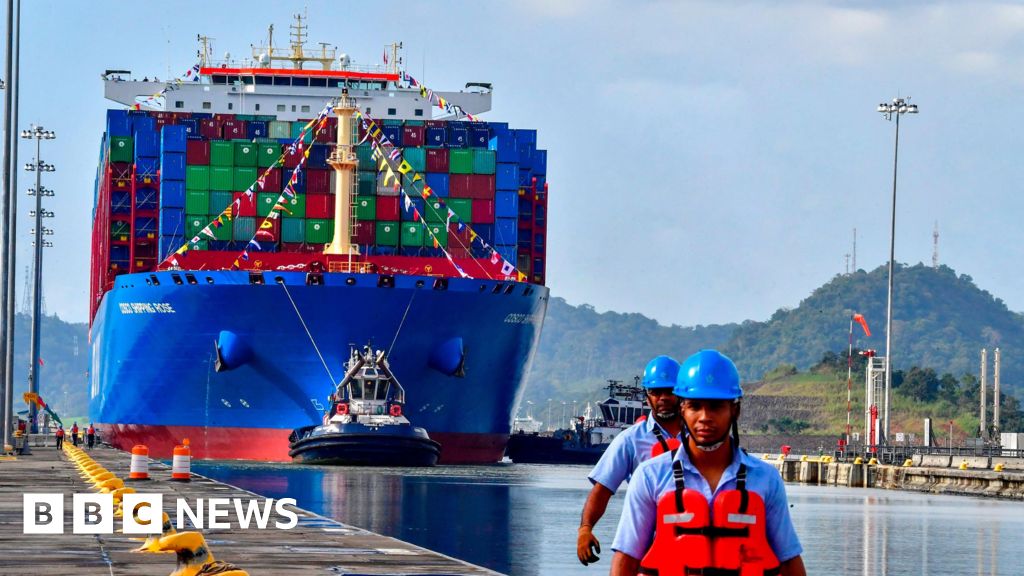ARTICLE AD BOX
 Image source, Getty Images
Image source, Getty Images
SB4 gives police officers in Texas broad powers to arrest migrants.
By Bernd Debusmann Jr & Max Matza
BBC News
Mexico has refused to accept any migrants deported by Texas under one of the toughest immigration laws enacted by any US state in modern times.
"Mexico will not accept, under any circumstances, repatriations by the State of Texas," the government said.
The statement was issued as the US Supreme Court allowed the measure, SB4, to take effect pending an appeal.
The law allows police in Texas to arrest those suspected of illegally crossing the US-Mexican border.
The Biden administration has challenged the law, calling it unconstitutional.
Courts have previously ruled that only the federal government can enforce the country's immigration laws, not individual US states.
Crossing the US border illegally is already a federal crime under US law, but violations are usually handled as civil cases by the immigration court system.
Under SB4, punishments range from potential imprisonment and deportation, or fines of up to $2,000 (£1,570).
Mexican officials have previously criticised SB4 as "anti-immigrant" and warned it would complicate relations with the United States.
The Mexican foreign ministry said in a statement on Tuesday: "Mexico categorically rejects any measure that allows state or local authorities to exercise immigration control, and to arrest and return nationals or foreigners to Mexican territory."
It added that the law would affect the human rights of an estimated 10 million people of Mexican origin that live in Texas.
SB4 would end up "creating hostile environments in which the migrant community is exposed to expressions of hate, discrimination and racial profiling", said the foreign ministry.
The ministry said Mexico would join the legal effort by US President Joe Biden's government to block SB4.
The White House sharply criticised the decision earlier on Tuesday by the US Supreme Court to allow the measure to take effect while a lower federal appeals court weighs its legality.
"SB4 will not only make communities in Texas less safe, it will also burden law enforcement, and sow chaos and confusion at our southern border," White House press secretary Karine Jean-Pierre said in a statement.
Historically, the federal government has created laws and regulations on immigration, even though the US Constitution does not explicitly grant it those powers.
Watch: A look at the US border as immigration debate heats up
It is also the federal government that negotiates treaties and agreements with other countries.
SB4 was signed into law in December and was initially due to come into effect on 5 March before it became bogged down in legal challenges.
The case will now head back to the New Orleans-based US Court of Appeals for the Fifth Circuit, where oral arguments are scheduled for Wednesday.
Whoever loses there would have the option of taking the case back to the Supreme Court.
The implementation of SB4 comes amid rising public concern over the US-Mexico border.
A Gallup poll released in February showed that nearly one-third of Americans believe immigration is the single greatest problem the country faces, ahead of the government, the economy and inflation.

 10 months ago
70
10 months ago
70








 English (US) ·
English (US) ·